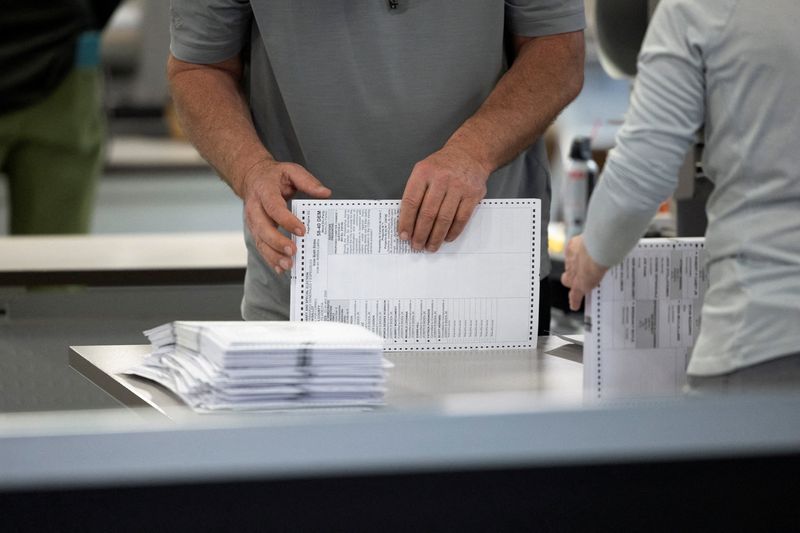The Pennsylvania Supreme Court recently made a significant ruling that allows election officials in the state to inform voters about errors on their mail-in ballots, enabling them to correct these mistakes before election day. This decision poses a setback for the Republican National Committee (RNC) and its Pennsylvania affiliate, who filed a lawsuit to challenge such “notice and cure” procedures. The lawsuit was rejected by the court, which determined that it was filed too close to the upcoming election on November 5, where Republican former President Donald Trump is competing against Democratic Vice President Kamala Harris. With Pennsylvania being a key battleground state capable of swinging the 2024 U.S. presidential election, this ruling further underscores the importance of maintaining voter access and participation.
The RNC’s challenge is part of a larger pattern where they are involved in over 120 voting-related lawsuits across 26 states. The party claims these actions are essential for preserving electoral integrity and preventing illegal voting practices. However, critics, including legal professionals and voting rights advocates, argue that these lawsuits serve a dual purpose: to create a preemptive narrative to contest possible electoral defeats and to suppress voter turnout among demographics that tend to favor Democrats. The legal maneuvers have varied in their outcomes, with some resulting in wins for Republicans, but overall, the court’s recent rulings indicate a trend towards protecting voter rights.
In conjunction with the ruling on mail-in ballots, the Pennsylvania Supreme Court also declined to hear a separate case from voting rights groups which challenged a state requirement that demands mail-in ballots bear the correct date to be counted. This ruling was similarly dismissed as being too close to the election. RNC Chair Michael Whatley celebrated the decision regarding ballot dates as a victory for election integrity, asserting that it would instill confidence among voters who choose to cast their ballots by mail.
Mail-in voting has become increasingly popular since the onset of the COVID-19 pandemic, leading to significant shifts in how elections are conducted. Trump has consistently criticized the reliability of mail-in ballots, alleging without substantiation that fraud was prevalent during the 2020 election, which he lost to President Joe Biden. The former president’s allegations have contributed to heightened scrutiny and skepticism regarding the mail-in voting process, which has further polarized public perception.
In their arguments against the notice and cure procedures, the RNC claimed that local election boards did not have the legislative authority to implement such measures. Conversely, the Democratic National Committee and its state affiliate emphasized that Pennsylvania’s election laws indeed empower local officials to facilitate voter participation by adopting these procedures. This legal contention reflects a broader clash between Democrats’ efforts to enhance voter accessibility and Republicans’ insistence on regulatory measures aimed at fostering election security.
Charles Lutvak, spokesperson for Kamala Harris’s campaign, framed the Pennsylvania Supreme Court’s ruling as a momentous victory not just for Democrats, but for democracy itself. The outcome illustrates the ongoing battle over voting rights and election processes in battleground states like Pennsylvania, where decisions taken by courts can have crucial implications for the electoral landscape leading into the 2024 presidential election. In a time of heightened political division and widespread debate over election integrity, these judicial rulings can influence public trust and voter engagement as millions prepare to head to the polls.

